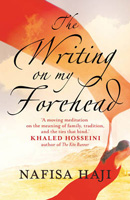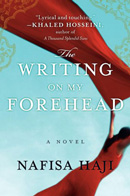
This pleasantly engaging debut is about family, tradition, stories and following one's heart. Saira Qader has grown up in LA with her traditional Indo-Pak parents. Though her older sister, Ameena, has always been virtuous and obedient, Saira has a rebellious streak. Her mother often relates family stories—usually with a moral of how to land a great marriage proposal—and Saira always misses the point, and sits with burning questions her mother refuses to answer.
Family stories are generally messy, but somehow her mother has always served them up neat and tidy. When Saira travels to London and then to Pakistan, at the age of 14, to attend a family wedding she finds the answers to many more questions than she bargained for. She also begins to identify with some unlikely family members as the tales unravel.
Haji stories of generations past are entertaining and wonderfully colourful; and many proverbial skeletons come tumbling out of the family closet providing our young protagonist with an altogether enlightening view of the extended family. She is astonished to learn how her grandfather had gone to London and fallen head over hills in love with an Englishwoman, Belle, whom he subsequently married. He was then ousted by his family in India, including Saira's mother, who never forgave him for turning his back on her and her mother.
The book sports a number of very likable characters, among them Big Nanima, Saira's beloved great aunt. Big Nanima is literally big. She is a food-loving, fun-loving intellectual, educated in England, and a Professor of English literature to women in Pakistan. Many pity her for never having married and for being childless. Saira sees a happy, independent, intelligent woman, who enjoys her own space and freedom, and she is relentlessly drawn to her.
Unlike her sister, and much to her mother's chagrin, Saira routinely flouts tradition and familial expectation. Contrary to expectations of marriage and settling down, she obtains a degree in Journalism and then travels the world, asking the questions others won't.
When circumstances in LA compel her to return home after years of telling stories of devastation and horror from around the world, Saira is forced to confront her own story. Looking back on her childhood, she remembers many incidents, including a particularly loving gesture towards her: She remembers how her mother would gently write words (of prayer) on her forehead, imploring her safety. As a child, she had always felt less loved than her older, adored sister. The significance of family, forgiveness, disappointment, and love eventually and slowly dawns on her.
Notwithstanding a perplexing two-page discourse on Journalism, and a couple of twists too many towards the end of
the book, I found this a moving and worthwhile read. The universal themes of mothers and daughters, the bonds between
sisters, forgiveness, the role of tradition in modern life, and more, will speak to most readers and render this
book great fodder for lively book discussions.


Arrow Books, paperback, 9780099536741
Harper Perennial, paperback, 9780061493867
